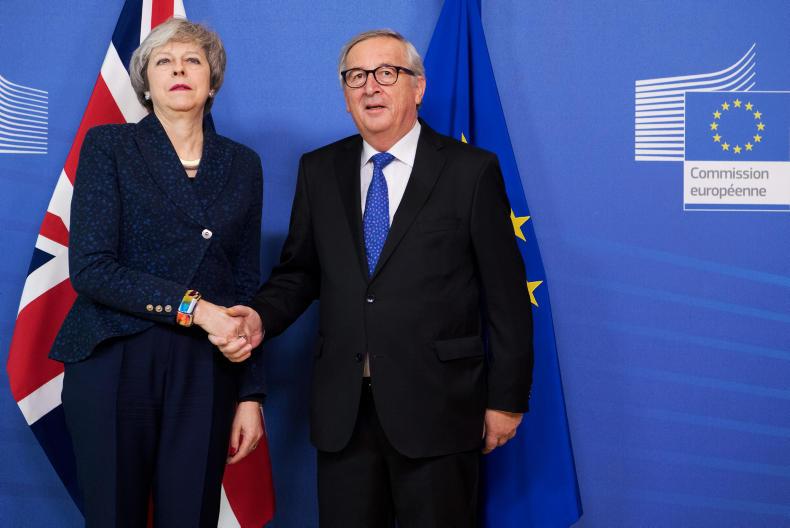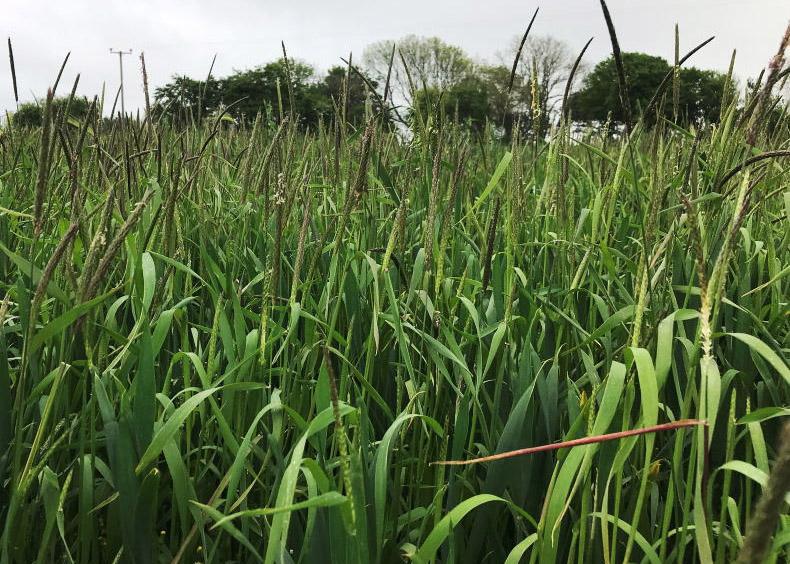British Prime Minister Theresa May wrote this Wednesday to the European Council to ask for Brexit to be delayed until 30 June while she continues to try getting her withdrawal agreement through Parliament.
With the current exit date of 29 March now less than 10 days away, speculation rages as to what relationship the UK will have with the EU, including Ireland, after that date.
All other EU countries must agree to the UK's request before it can take affect. At present the only certainty is that if nothing else happens, the UK departs the EU at 11pm on Friday 29 March.
The only thing there probably is a clear majority for in the UK parliament is that there should be some sort of a deal.
The problem is that there is no consensus for what type of arrangement that should be.
Farmers' interest
One of the options that is being advocated is that a short-term extension of membership should be sought by the UK as it wrestles with shaping its future relationship with the EU.
Extending Brexit by a matter of weeks or indeed months only prolongs the uncertainty
There is little enthusiasm in Brussels for this, as it is unclear what it would achieve, apart from prolonging the uncertainty.
The same logic applies for Irish farmers, who are the most dependent sector of Ireland's and indeed the EU 27's economy on trade with the UK.
A short-term extension simply prolongs the uncertainty that has been hanging over the industry here since the referendum in 2016.
Beef
Beef from cattle that are were killed in Irish factories last week and for the rest of this month will not be sold until after Brexit. That means product sitting in vacuum packs and coldstores doesn't yet have a tariff applied to it for entry to the UK market.
Extending Brexit by a matter of weeks or indeed months only prolongs the uncertainty and makes an already difficult market, especially for beef, event worse.
Best option
From a farmer's point of view, the best option would be the UK deciding that after looking at the options outside the EU, there is no better arrangement, even for global trade, than the present one of EU membership.
Despite the logic of it, that is unlikely.
Next best option
The next best option is the closest possible alignment of customs and production standards with the UK outside the EU.
These will involve less freedom for the UK to do its own thing internationally, but with access for Brazilian beef to the UK market a likely early consequence of an independent UK trade policy, that would be no bad thing for Irish farmers.
Extension
If there is to be an extension, make it a long one, during which a future trading relationship can be thrashed out and parallel preparations be properly made for Brexit.
Based on other trade negotiations, that will take years, not months, and it is better to face that reality now and with certainty rather than working on a day-by-day and week-by-week basis, as it is at present.
Read more
Barnier proposal on backstop a non-starter
NI committee: technical solution for border checks possible
Minister blames Brexit for Fair Deal reform delay
British Prime Minister Theresa May wrote this Wednesday to the European Council to ask for Brexit to be delayed until 30 June while she continues to try getting her withdrawal agreement through Parliament.
With the current exit date of 29 March now less than 10 days away, speculation rages as to what relationship the UK will have with the EU, including Ireland, after that date.
All other EU countries must agree to the UK's request before it can take affect. At present the only certainty is that if nothing else happens, the UK departs the EU at 11pm on Friday 29 March.
The only thing there probably is a clear majority for in the UK parliament is that there should be some sort of a deal.
The problem is that there is no consensus for what type of arrangement that should be.
Farmers' interest
One of the options that is being advocated is that a short-term extension of membership should be sought by the UK as it wrestles with shaping its future relationship with the EU.
Extending Brexit by a matter of weeks or indeed months only prolongs the uncertainty
There is little enthusiasm in Brussels for this, as it is unclear what it would achieve, apart from prolonging the uncertainty.
The same logic applies for Irish farmers, who are the most dependent sector of Ireland's and indeed the EU 27's economy on trade with the UK.
A short-term extension simply prolongs the uncertainty that has been hanging over the industry here since the referendum in 2016.
Beef
Beef from cattle that are were killed in Irish factories last week and for the rest of this month will not be sold until after Brexit. That means product sitting in vacuum packs and coldstores doesn't yet have a tariff applied to it for entry to the UK market.
Extending Brexit by a matter of weeks or indeed months only prolongs the uncertainty and makes an already difficult market, especially for beef, event worse.
Best option
From a farmer's point of view, the best option would be the UK deciding that after looking at the options outside the EU, there is no better arrangement, even for global trade, than the present one of EU membership.
Despite the logic of it, that is unlikely.
Next best option
The next best option is the closest possible alignment of customs and production standards with the UK outside the EU.
These will involve less freedom for the UK to do its own thing internationally, but with access for Brazilian beef to the UK market a likely early consequence of an independent UK trade policy, that would be no bad thing for Irish farmers.
Extension
If there is to be an extension, make it a long one, during which a future trading relationship can be thrashed out and parallel preparations be properly made for Brexit.
Based on other trade negotiations, that will take years, not months, and it is better to face that reality now and with certainty rather than working on a day-by-day and week-by-week basis, as it is at present.
Read more
Barnier proposal on backstop a non-starter
NI committee: technical solution for border checks possible
Minister blames Brexit for Fair Deal reform delay










SHARING OPTIONS